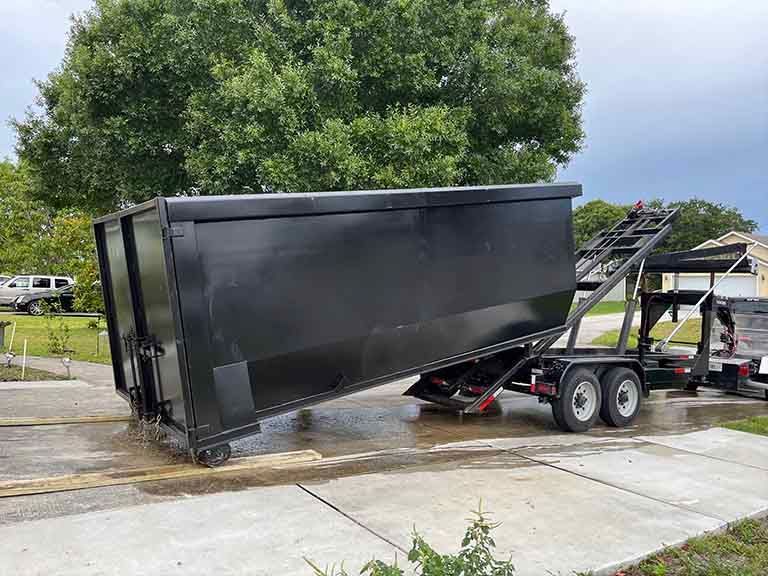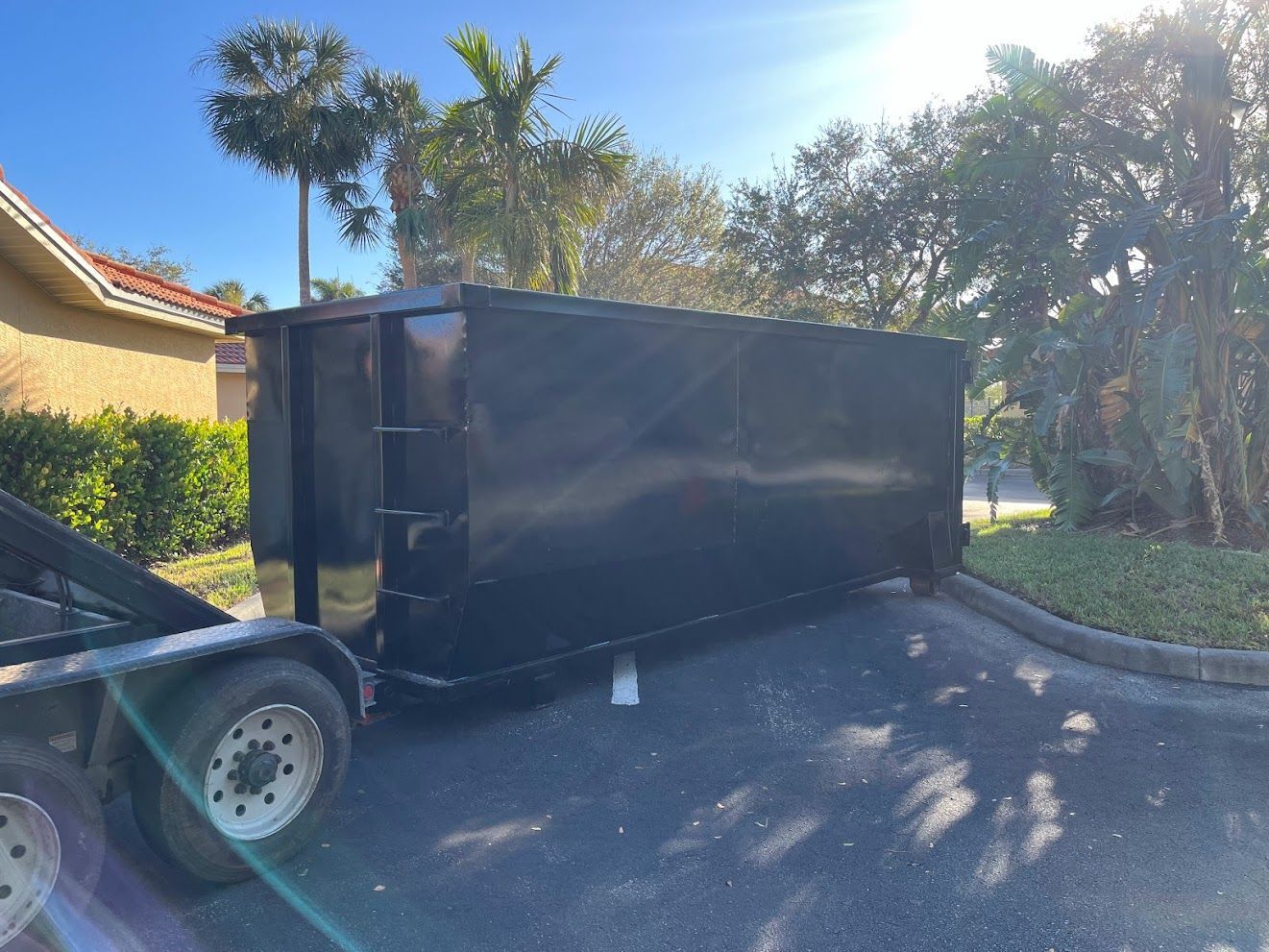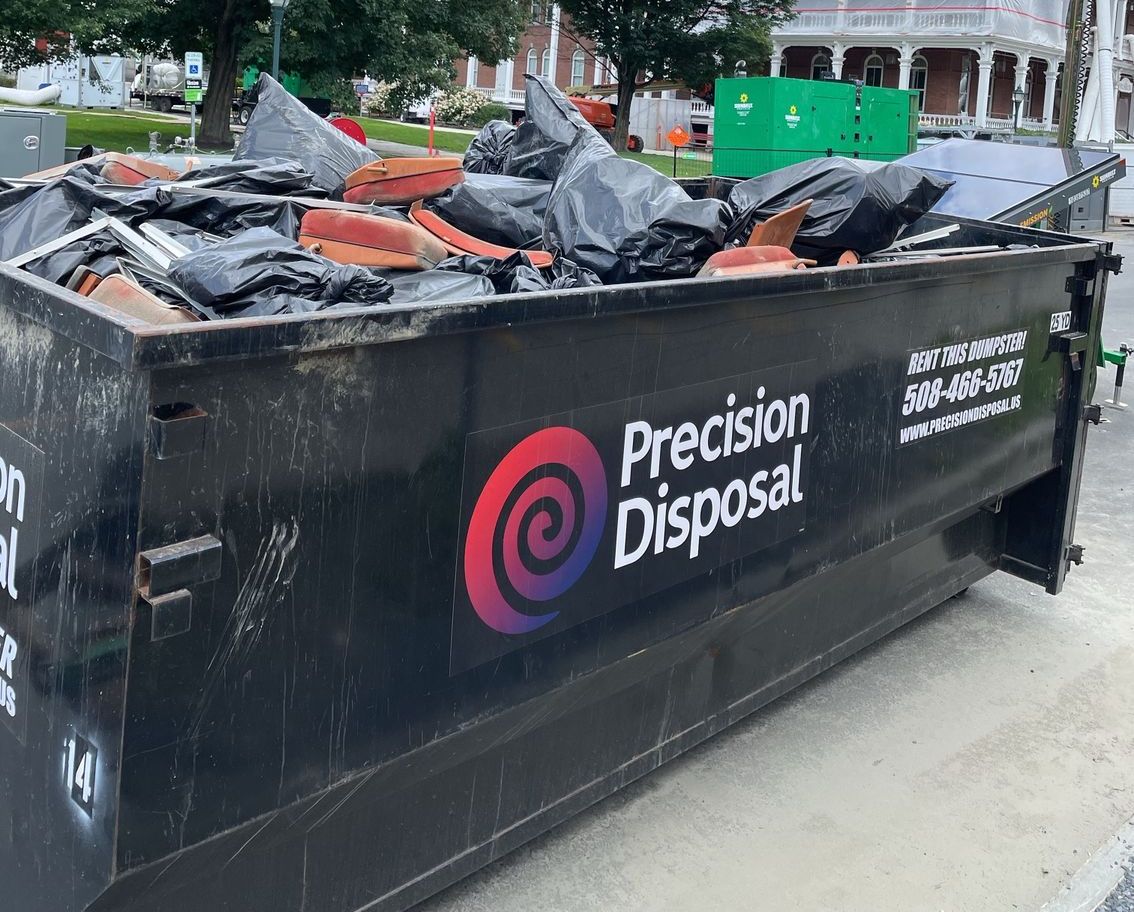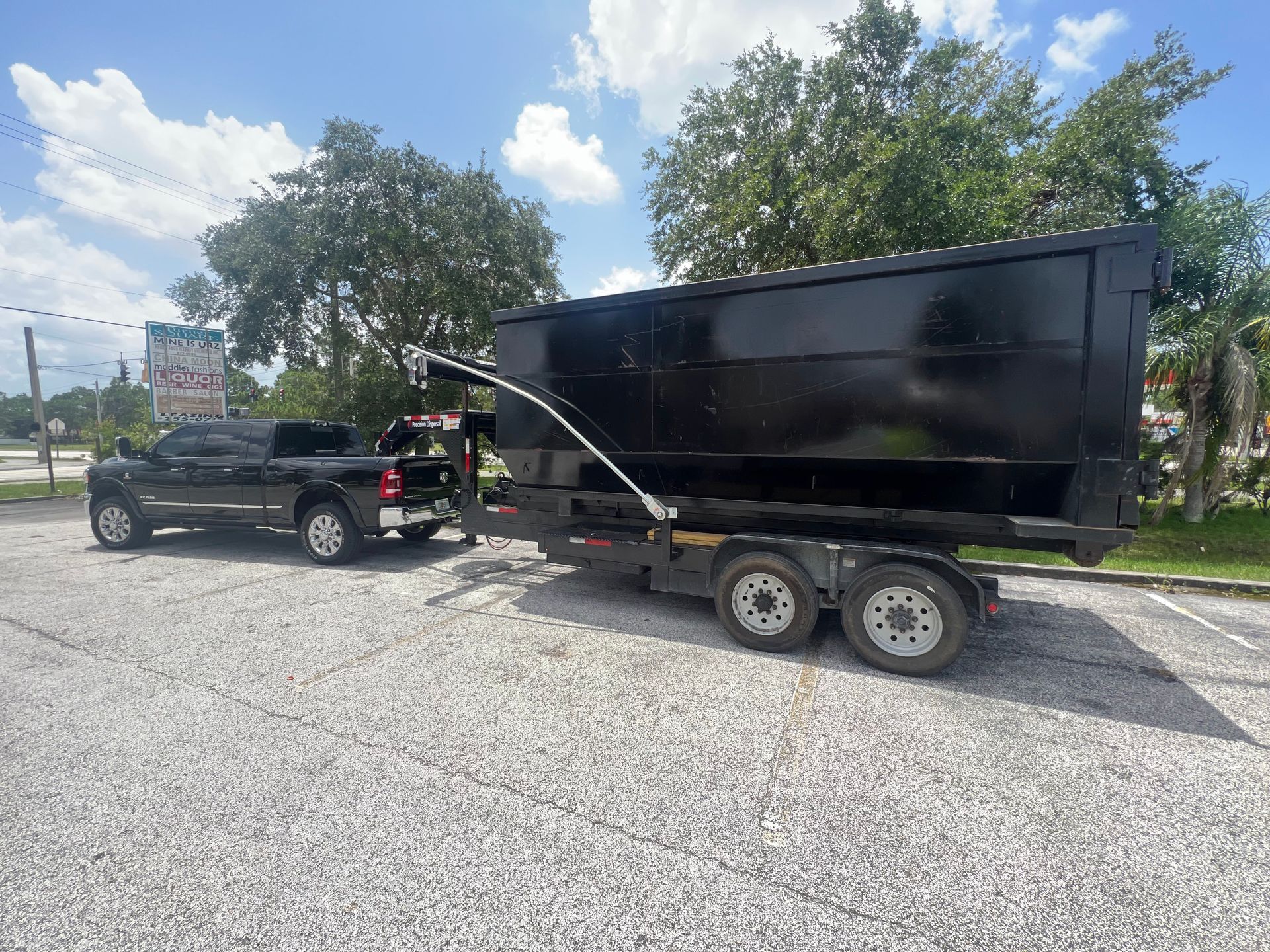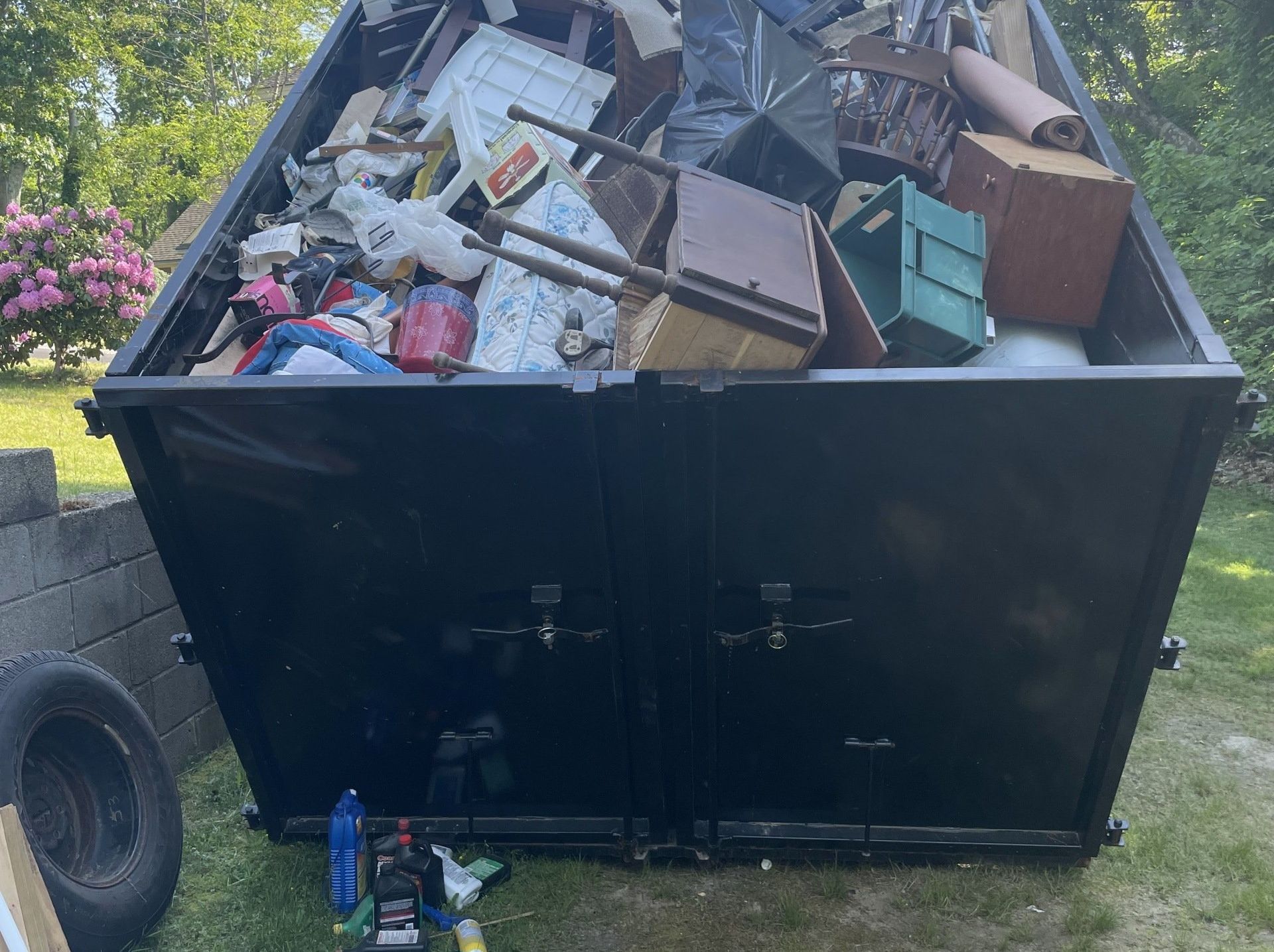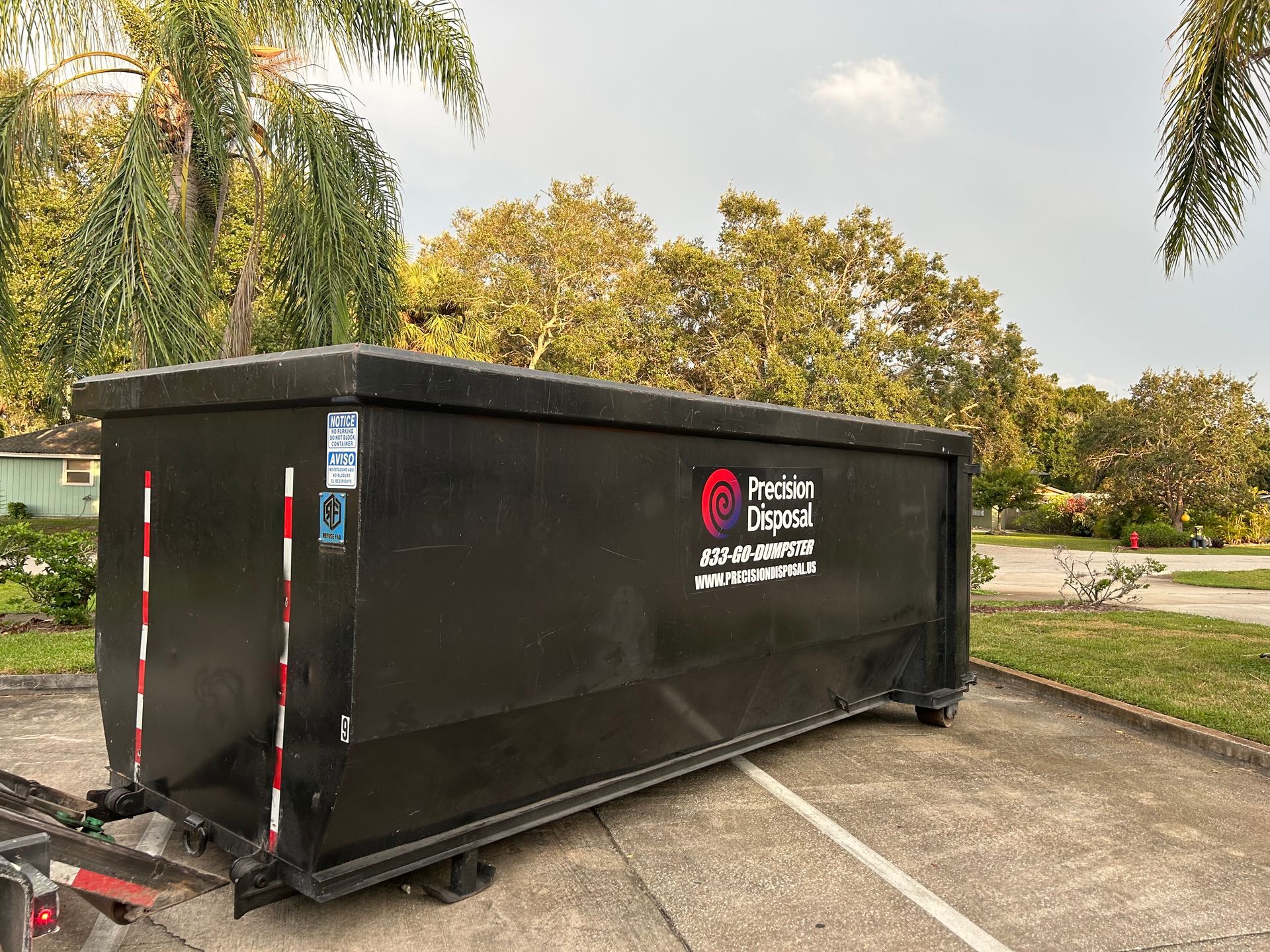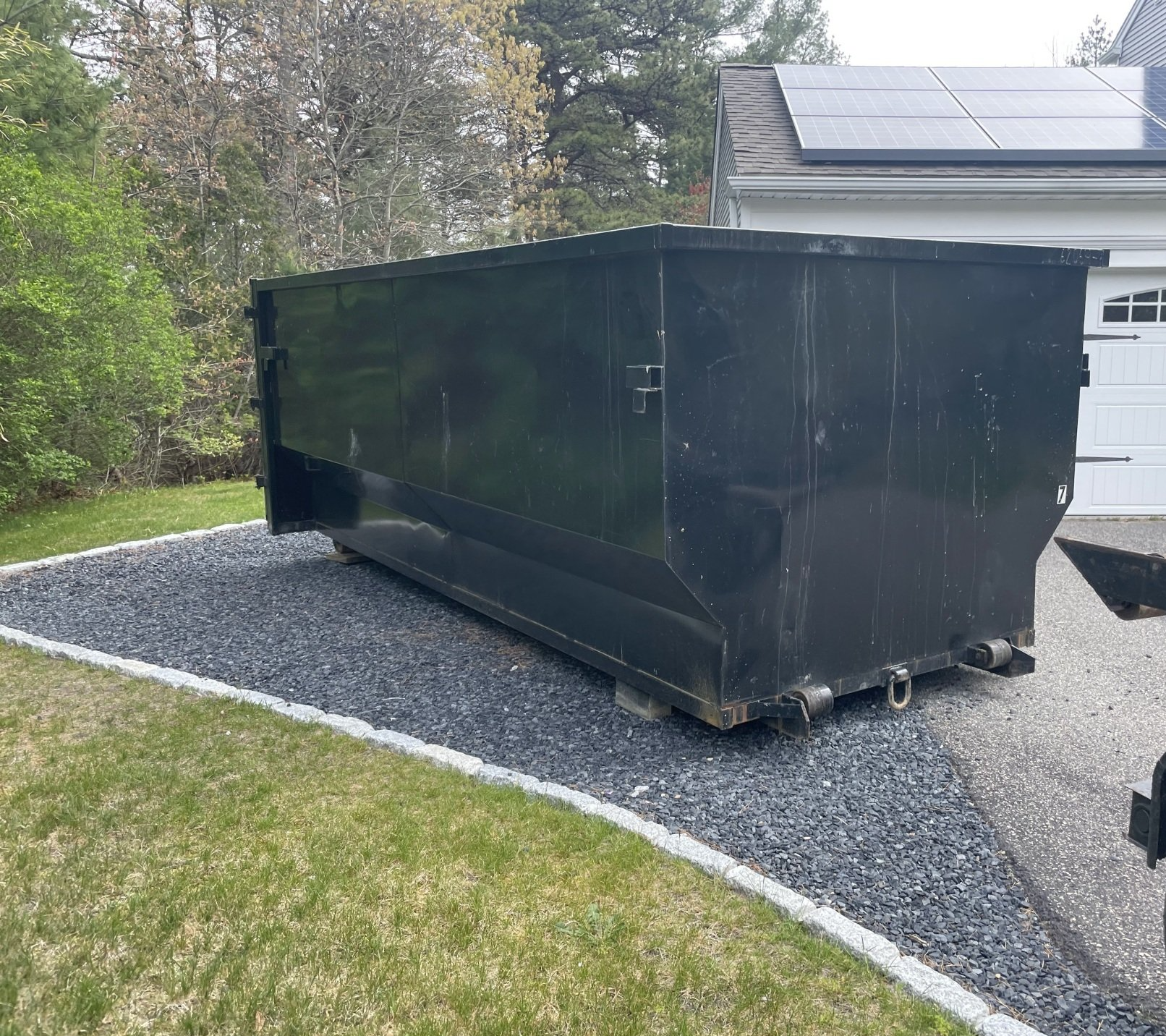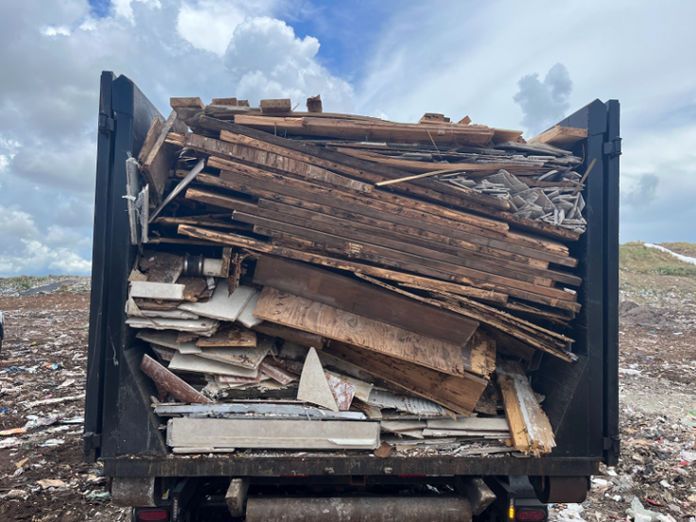Dumpsters VS Dump Trailers
Dump Trailer VS Dumpster
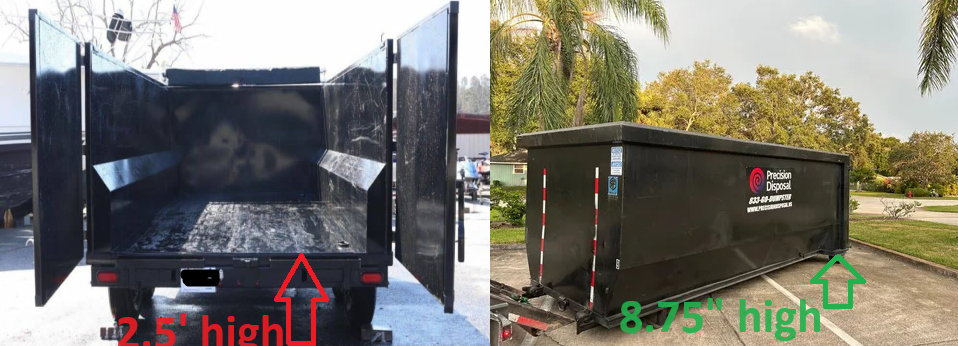
Why Dump Trailers Are Not A Suitable Alternative To Dumpsters
Dumpsters and dump trailers are both options for waste disposal, but they have distinct differences that make dumpsters a preferable choice in many situations. In today's market, the availability of dump trailers alongside traditional dumpsters has created confusion for consumers. It's essential to understand these differences before deciding which option is best for your needs.
One of the most noticeable distinctions between dumpsters and dump trailers is their height off the ground. When you rent a dump trailer, it typically sits at least two feet off the ground, making it challenging to load heavy, large, or bulky items. In contrast, dumpsters are designed to sit only a couple of inches off the ground, allowing for easier loading. This height difference becomes particularly relevant when you need to load items like furniture or boxes, where the convenience of walking straight into a dumpster can't be overstated. Dump trailers, on the other hand, require you to load items into an elevated position, which can be physically demanding and less efficient.
Another significant concern with dump trailers is their safety when placed in driveways, especially on slopes or during inclement weather. Rubber-tired dumpsters have limited capacity when it comes to braking and ensuring that they remain safely stationary. They often require the use of chalk blocks and other mechanisms to prevent movement when not attached to a vehicle. In contrast, dumpsters from companies like Precision Disposal are designed with solid blocks at the front, preventing them from moving even on slopes or in case of flat tires. Dump trailers, due to their wheel-based design, are more prone to situations where the front end of the trailer could lift off the ground, potentially leading to dangerous situations where the trailer could roll down a hill. This safety concern alone is a compelling reason to avoid renting dump trailers.
Dump trailers may also have limitations when it comes to environmental impact. Waste management and disposal have become increasingly significant concerns in recent years. Dumpster rentals often come with environmentally friendly options and practices that dump trailers may not offer.
Dumpsters are typically emptied at a local waste disposal facility, where waste is sorted and processed, with recyclables separated from non-recyclables. This means that by using a dumpster, you are indirectly contributing to recycling efforts and reducing the environmental footprint. Many dumpster rental companies have stringent recycling programs in place, ensuring that a significant portion of the waste collected gets recycled, helping to conserve valuable resources and reduce landfill waste.
On the other hand, dump trailers are often used by "Chuck in a truck" and may not follow regulations and guidelines. They are generally far less expensive to buy and this has opened up a wide array of people to using them as substitutes for dumpsters, and as side hustles. This is not to say everyone who owns and operates a dump trailer is not a professional, because there are entire markets that depend on this, its just far more likely you run in to someone who isn't.
Furthermore, dumpsters are often available in various sizes, allowing you to choose the right container based on your specific needs. Whether you're working on a small home renovation project or a large-scale construction job, you can select a dumpster size that matches your waste generation. This customization minimizes unnecessary waste and optimizes space, reducing the number of trips required for waste disposal.
Dump trailers, while versatile, may not offer the same level of size flexibility. You may find that you're stuck with a dump trailer that's either too large, resulting in wasted space, or too small, leading to frequent trips for disposal, which can be both time-consuming and environmentally inefficient.
In addition to the environmental benefits of dumpsters, they also offer more predictable and manageable pricing structures. Dumpster rental companies often provide transparent pricing based on the size of the container, the duration of rental, and the type of waste being disposed of. This allows you to budget effectively and avoid unexpected costs.
Dump trailers, on the other hand, may have more complex pricing models. Rental fees, disposal fees, and additional charges can quickly add up, making it challenging to estimate your total costs accurately. With dumpsters, you have a clear understanding of what you're paying for upfront.
Another crucial consideration is the accessibility of dumpsters and dump trailers in different locations. Dumpsters are widely available and can be delivered to various sites, including residential areas, commercial properties, and construction sites. Their low profile allows for easy placement in tight spaces, making them suitable for a wide range of applications. Unlike a dump trailer which adds the tongue of the trailer to the overall length of the unit when left behind.
Dump trailers, however, may be less versatile in terms of accessibility. Their elevated height and potential for parking issues may limit where they can be placed. This restriction could pose challenges for residential projects with limited space or sites that require frequent relocation of waste disposal equipment.
Furthermore, dumpsters are known for their durability and ruggedness. They are designed to withstand heavy use and harsh conditions, ensuring that your waste disposal needs are met reliably. Dump trailers, while robust, may not be as resilient as dumpsters and may require more maintenance over time, potentially leading to downtime and added costs.
In summary, the choice between dumpsters and dump trailers goes beyond mere convenience and extends to environmental considerations, cost transparency, size flexibility, accessibility, and durability. Dumpsters offer several advantages in these aspects, making them a more sustainable and efficient choice for waste disposal needs. While dump trailers have their niche uses, particularly in certain industrial applications, they may not be the best alternative for most consumers and businesses looking for reliable and eco-friendly waste management solutions.
By choosing dumpsters over dump trailers, you contribute to more responsible waste disposal practices, support recycling efforts, and ensure cost-effective and accessible waste management solutions tailored to your specific needs. The environmental benefits, predictability in pricing, versatility in sizing, accessibility, and durability of dumpsters make them a preferred choice for a wide range of applications, from home renovations to large-scale construction projects.
In conclusion, when evaluating the differences between dumpsters and dump trailers, it's evident that dumpsters offer a more comprehensive and environmentally conscious solution. The advantages they bring in terms of sustainability, cost-effectiveness, flexibility, accessibility, and durability make dumpsters the superior choice for efficient and responsible waste disposal.
We hope you'll consider working with Precision Disposal for your Dumpster Rental Services.
